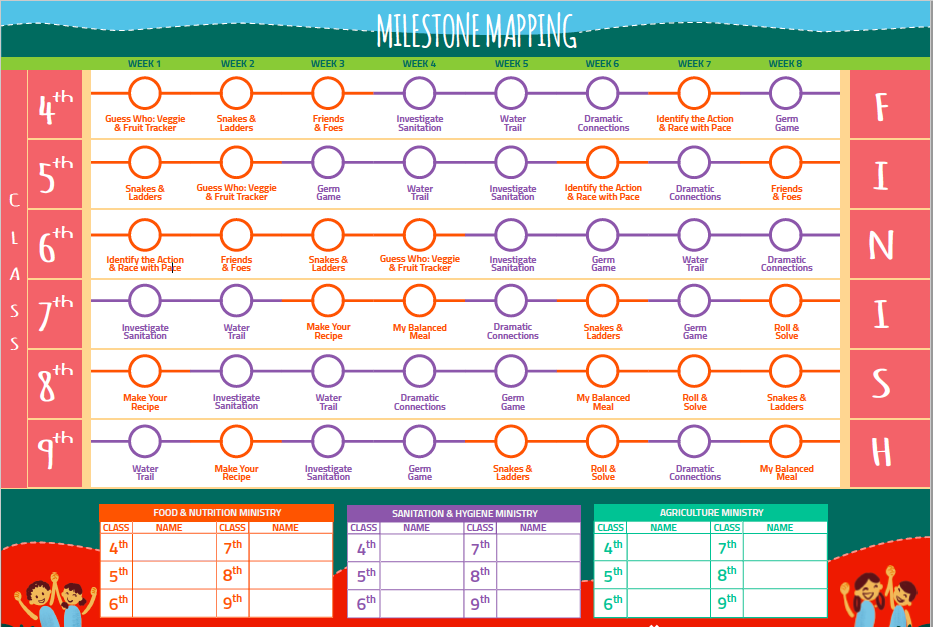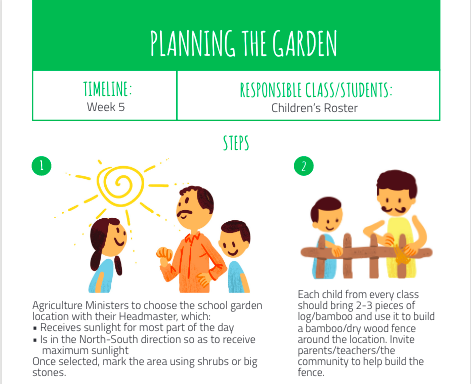
The Nourishing Schools toolkit allows for its easy adoption and implementation across schools. The process of designing this toolkit is collaborative, so that the organisations and schools that partner with us can adopt its modules effectively. For example, teachers and students can share their feedback to improve its success. They aren’t mere implementers, but stakeholders in its success.
Nourishing Schools Foundation provides the toolkit and support, but the true ownership of this programme and all credit for its success belongs to school principals who want to ensure a better future for the children, teachers who want to empower as well as educate, and changemakers who want to achieve sustainable improvements.
The Nourishing Schools toolkit is rolled out in a school over 8 weeks, through the efforts of “student ministers” i.e. leaders identified from amongst schoolchildren, that use its components to involve their peers in efforts to tackle malnutrition. The toolkit components broadly cover three topics.

Food and Nutrition
This part of the toolkit includes games that teach children about the nutritious properties of foods and encourages them to adopt healthy eating habits. For example, the Guess Who game involves guessing the food item on the picture card using hints from the clue cards. In the process of playing the game, children learn about the benefits of various foods. Such games aid association and recall, implementation and help in better decision-making. In addition, the My Balanced Meal game teaches children about how they can combine various foods to create a balanced diet. This is combined with efforts to encourage their consumption such as by sharing local recipes and home remedies.

Sanitation and Hygiene
Access to safe drinking water, sanitation, and hygiene (WASH) services have an important positive impact on nutrition. To support this, the toolkit encourages children to observe the quality of water, sanitation and hand-washing amenities in their schools and communities. For example, through the Investigate Sanitation game, children learn how to assess the quality of sanitation facilities and what can be improved in their environment. Further, the Dramatic Connections game encourages them to act out a skit showing the impact of poor access to WASH services and how to address this.

Agriculture
The toolkit can only reach its full potential if its effects are felt within the community. To begin with, our work encourages children to manage a school garden, to improve their access to nutritious foods. The behavioural changes brought about in schools can then have a ripple effect through the larger social sphere. To support what is taught in schools, Nourishing Schools works with farming groups to encourage the cultivation of nutritious foods by linking them to increased incomes. This is combined with efforts to encourage their consumption such as by sharing local recipes and home remedies. This builds both the supply and the demand for nutritious foods.